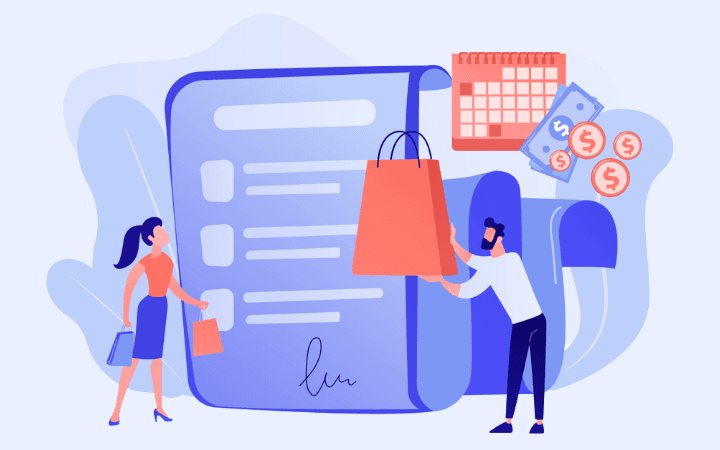‘Buy Now, Pay Later’ is Booming. But Companies are Facing Pressure to Change

Buy now pay later- the point-of-sale financing function is popularized by Fintech companies like Klarna, Affirm, and Afterpay. These are the sectors that grow most rapidly in payments. A surge caused by the coronavirus pandemic in e-commerce has particularly benefited providers of this form of financing. Merchants are set to use “buy now, pay later” in unprecedented ways during the festive season.
It’s not only a hot new payment or e-commerce technology; it’s also a critical marketing component for merchants looking to increase sales. The expansion has been really quick. Consumers are expect to spend $100 billion on “buy now, pay later” items in 2021, up from $24 billion in 2020. And this amount might be 15 times higher by 2025.
The sign of this new market flow is that “buy now, pay later” is not even an agreement on whether. The purchases are a loan. Companies and merchants view them as convenience or payment plans. However, more regulators and consumer advocates consider them as loans. That should be protected in the same security as credit cards or other forms of consumer credit.
Opinions of customers are also vital. Many consumers now distinguish “buy now, pay later” from traditional credit cards. However, if more people had terrible experiences with the pay-letter system, the halo could fade.
Buy now pay later enables consumers to receive instant credit at the point of sale, and pay for a purchase over an agreed schedule. The loans are usually interest-free but may incur late fees.
Due to the low cost, minimal or no interest, and more transparency, businesses are announcing “buy now, pay later” as the best option for credit card debt. In addition, many customers, particularly the younger generation, have abandoned credit cards in order to avoid debt. This way buy now pay later changing the way credit works.
However, while “buy now, pay later” has advantages over credit cards, there are difficulties that could pose problems for businesses.
Consumer Misinterpretation
While Buy Now Pay Later has a lot of advantages for both retailers and customers, it also has a dark and shady side. Consumers have filed complaints to the Consumer Financial Protection Bureau about issues with purchases. Such as being unable to return or receive a refund or being charged fees they didn’t understand.
According to Fortune’s Rachel King, pay later products, like credit cards, are only reasonable if customers pay on time. Like credit cards, those penalties add up quickly if consumers don’t make payments on time. And consumers face the prospect of falling into large amounts of debt in a short amount of time. Hence there is a lot of confusion among consumers who buy now and pay later using mobile money wallets.
According to Credit Karma research, 1/3 of customers who utilize “Buy Now, Pay Later” products fell behind on one or more payments, and 72% of them said their credit score had decreased.
Furthermore, buy now pay later programs are unlikely to be financially beneficial to consumers in the long run. According to Ted Rossman, Industry Analyst, most Buy Now Pay Later programs, unlike credit cards, do not help users develop credit. Afterpay and Klarna do not report to Experian, while Affirm does.
Affirm claims that rather than extending a line of credit, it underwrites each transaction separately, utilizing data other than credit scores to ensure that customers are repaying. Afterpay, on the other hand, suspends the customer from the system if there is a delay in payment, ensuring that they do not run into too much debt.
Regulatory Issues
Buy now, pay later” is not yet regulate in the same manner as credit cards are. That implies there are no guidelines for fee disclosures, due amounts, credit reporting, or payments. Also a “buy now, pay later” payment’s due date isn’t as obvious as a credit card with a continuous payment date.
Furthermore, BNPL companies frequently claim that the payment method boosts clients’ purchasing power and gives financial freedom, whereas some critics believe that the agency banking solution product may push individuals to spend more than they can afford, leading to debt buildup, particularly among the youngsters. Concerns about debts and possible regulatory scrutiny are two difficulties that the BNPL sector may confront.
In February, the UK Treasury announced that BNPL shopping services will be subject to greater regulation. The Financial Conduct Authority (FCA), which supervises financial services enterprises. And markets in the United Kingdom, would oversee these FinTech firms. Before making a loan to a customer, these companies must complete an affordability assessment.
Mobile money solutions that offer “buy now, pay later” services rose swiftly by meeting a need for less expensive, more convenient financing — and by taking advantage of regulatory loopholes. They will, however, have to find out how to fit into the existing laws, just like other companies in regulated industries.




